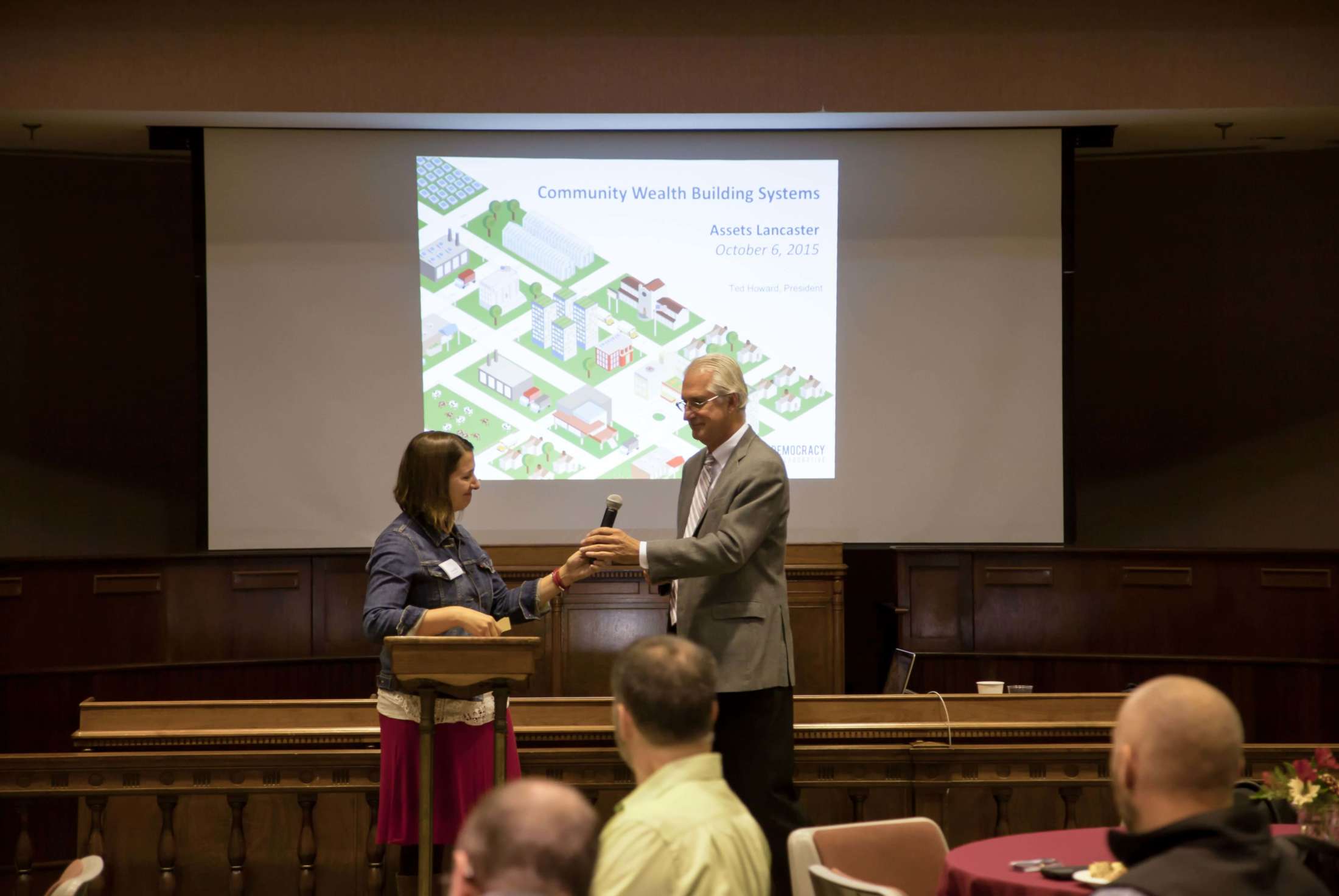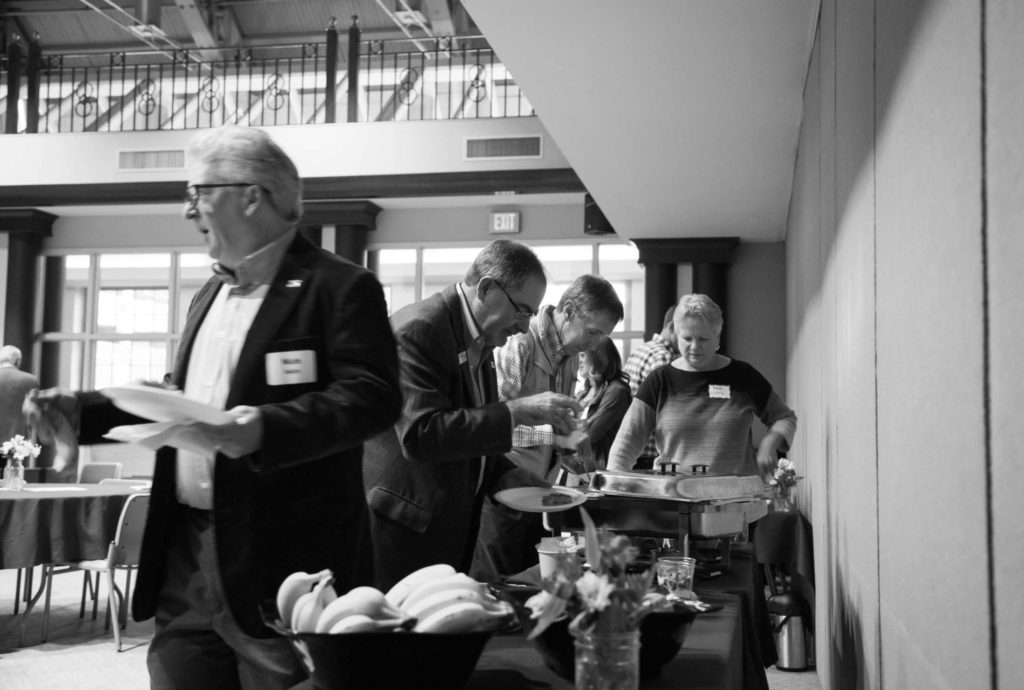Community Wealth Building: Reinvigorating American Democracy

By: Courtney Rinden, Staff Intern
Ted Howard’s localist approach to community wealth building argues the necessity of progressive pathways—working beyond the scope of traditional, federally driven solutions—for combating socioeconomic inequality. To reinvigorate American democracy, communities must embrace market solutions driven by large, place-based institutions, made sustainable through expanding ownership.
Increasing socioeconomic inequality betrays our belief system’s foundation in democracy and equal opportunity for all. The American Dream deems that with talent and ability, you can go anywhere and be anything—but our widespread belief in meritocracy and equal opportunity is naïve. Howard declared that the number of people living in high poverty neighborhoods has doubled since 2000, and that half of US children under 5 live in low-income situations. What’s more, a job does not secure one’s position out of poverty. “A job alone is not enough,” Howard argued, citing that 1 in 4 US jobs pays less than poverty-level wages. Millions of Americans live below the poverty line, but some of those individuals technically possess the “opportunity” for upward mobility. It’s a catch-22 for our time. Howard encouraged the audience to consider the ironies inherent in this reality and how we’re literally stunting our own socioeconomic growth through present business practices.
 Despite the emerging failure of our “democracy” to meet the needs of all citizens, traditional markets can support a more inclusive economy. Place-based institutions, like educational institutions (Franklin & Marshall College and Millersville University) and medical institutions (Lancaster General Hospital and Lancaster Regional Hospital), will forever be anchored in our community. Howard argues there’s immense incentive for these institutions to improve their local surroundings. More than incentive though, these institutions have responsibility to be agents for change, according to Howard. With million dollar budgets, such institutions can offer viable opportunities to support more sustainable, fair business practices. This theory is already gaining traction in Lancaster: creative solutions to local dilemmas.
Despite the emerging failure of our “democracy” to meet the needs of all citizens, traditional markets can support a more inclusive economy. Place-based institutions, like educational institutions (Franklin & Marshall College and Millersville University) and medical institutions (Lancaster General Hospital and Lancaster Regional Hospital), will forever be anchored in our community. Howard argues there’s immense incentive for these institutions to improve their local surroundings. More than incentive though, these institutions have responsibility to be agents for change, according to Howard. With million dollar budgets, such institutions can offer viable opportunities to support more sustainable, fair business practices. This theory is already gaining traction in Lancaster: creative solutions to local dilemmas.
We need to look at the supply chains for these large institutions. This is an already defined market opportunity for social enterprise to enact ethical, sustainable business models to meet real need. Plus, we can use the market to create positive social change. Howard referenced Greyston Bakery, located in Yonkers, New York, as an example of how business can counteract systemic injustices. Intentionally hiring individuals with barriers to employment, Greyston pays employees a thriving wage. Greyston then sells baked goods on a national scale and uses the profits to sustain programs to empower employees on the path to self-sufficiency. Companies like Greyston prove that the free market doesn’t have to remain exclusive—federal policies that lack “teeth,” can be side skirted through smaller scale initiatives.
Essential to the long-term success of this localist approach to attacking inequality is empowerment through ownership. Through cooperative and employee-ownership models, local businesses can “anchor capital” through paths to ownership built into their business plans. Lack of wealth affects all facets of life; local businesses can step in to mitigate the discrepancies. Howard cited Market Creek Plaza, in San Diego, California, as an example where a mixed-use development emphasizing culture and commerce offers local residents the chance to buy shares. In an age when ownership in increasingly unavailable to America’s lower classes, intentional community-oriented business models can empower individuals that face historic barriers to wealth accumulation, to build a stronger, more stable legacy for inclusive prosperity. This model also strengthens ties to the development’s surrounding communities, as individuals with stake in the development have vested interest in the development’s success. With ownership in mind, businesses can implement profitable mechanisms that challenge mobility barriers and dead-end employment models, for long-term fulfillment and inclusion through the labor market.

Howard’s local, grassroots approach is already alive in Cleveland, Ohio. And while his solution places more of the locus of control for outcomes on local institutions, the positive changes are tangible. If we are to remain hopeful in the fight for greater social justice, Howard’s community wealth building theory needs support. Lancaster possess the power to change our immediate reality, we just need the dedicated leadership to bring this theory to life. Let’s take back our rights to govern themselves.
